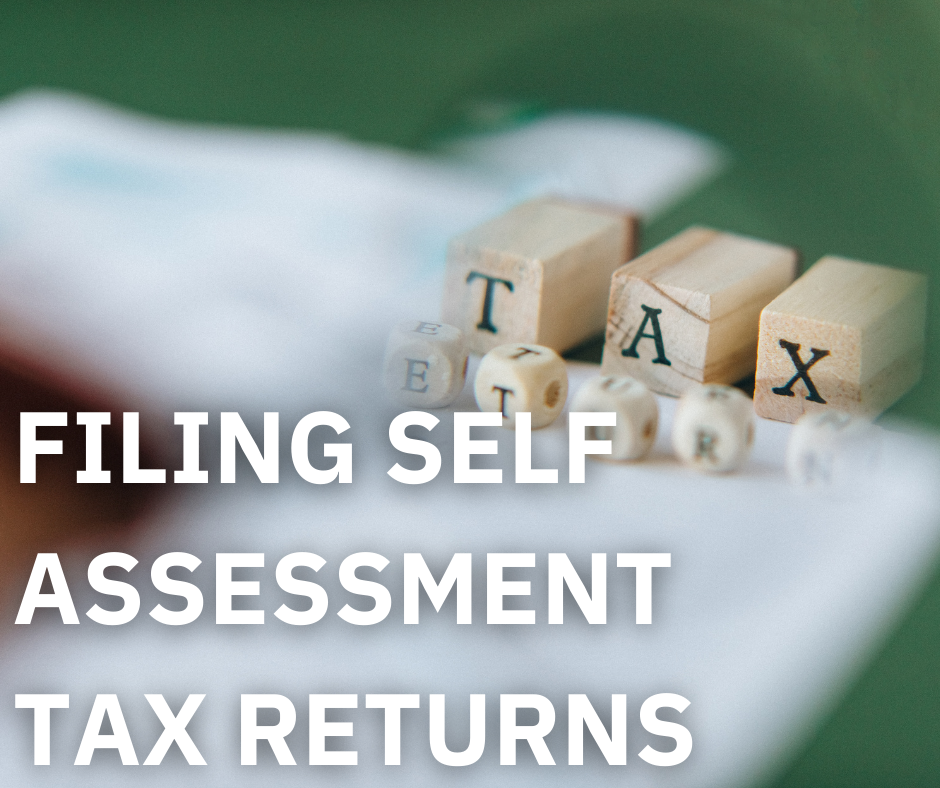Self-assessment tax returns may be intimidating. They're a lot easier than they appear if you're prepared, organised, and know what you'll be asked for. It's critical that you fully understand yours so that you can file it correctly and avoid any potential fines.
What is a Self Assessment Tax Return?
When you earn money through work, your employer will pay PAYE tax to HMRC on your behalf. PAYE (pay-as-you-earn) is a system in which your employer deducts your income tax and NI payments from each paycheck. In a nutshell, they do your taxes for you.
Although self-assessment is a distinct type of tax, it accomplishes the same goal. Its goal is to enable individuals to make tax payments on income for which they have yet to make contributions.
It refers to earnings derived from sources other than contracted work. Because this money is not subject to the PAYE tax system, no applicable taxes have been deducted before it reaches you, therefore it is still due.
Self-assessment tax returns are often connected with self-employed individuals. Contractors, freelancers, and other forms of sole traders fall under this category. They make money through their own business and, as a result, must pay tax on their profits because no one else is paying it for them.
It is also important to note that self-employed individuals are not the only ones who must file a tax return. Even if it's a one-time event, you must file a tax return if you get any additional taxable income outside of your job.
Individuals in the United Kingdom may be required to file a tax return if they have the following types of taxable income:
- Property-based income;
- Earnings from investments (sales of stocks, shares, etc);
- Dividends from companies;
- Assets are being sold (businesses, commercial property);
- Unregistered commissions and tips;
- Earnings from savings;
- Earnings from outside the country;
- Revenue from extra sales on a regular basis (eBay, Amazon store, mobile apps, etc).
Who is exempt from submitting a Self Assessed Tax Return?
Unemployed people, as well as those who make money solely as contract employees for a company, do not have to file a tax return. Only people who are self-employed or who earn money from sources other than contract work (property, investments, etc) are required to file a tax return.
If you make less than £1000 from your self-employed activity, you are exempt from this restriction. You don't have to file a tax return if you earn less than this amount.
How do I submit one?
If this is your first time filing a return, you must first register for Self Assessment. If you're self-employed, not self-employed but need to report income, or in a partnership, there are several methods to register.
1 - You will receive your Unique Taxpayer Reference once you've completed the registration process (UTR).
2 - Then you will need to create a Government Gateway account if you wish to submit your Self Assessment form online. Follow the instructions on the letter that contains your UTR to do so.
3 - Get an activation code in the mail once you've completed the account setup. After that, you'll need to finish setting up your Gateway account.
4 - You will need your old UTR to register and set up the account if you've previously filed Self Assessment tax returns.
Before attempting to submit your Self Assessment, check sure you have access to your Gateway account. If you are unable to log in for whatever reason, this will save you time.
Additionally, Tax Returns are filed for tax years which are done in arrears.
Reading the necessary HMRC assistance papers is also a good idea. Particularly on the additional pages, or extra parts, that pertain to why you're doing the Self Assessment tax return.
How can I avoid going through an HMRC investigation?
There are many reasons as to why your business may be subjected to an investigation by HMRC.
An investigation by HMRC can be a taxing and overwhelming process for any business, therefore we advise that you do the following in order to prevent added stress to your business:
- Use accounting and filing software that is up to date. It has the potential to avoid mistakes that lead to inquiries.
- When filing your Self Assessment tax return, don't rush. It's more probable that you'll make a mistake this way.
- Make sure that all of the data are correct, and that you supply all of the necessary information.
- Non-allowable expenditures should not be claimed. When you're self-employed, find out about permitted costs if required.
- Never lie to HMRC about your expenditures or conceal taxable revenue.
- Explain why your expenses or income are considerably greater or lower than in previous years in your tax return.
HMRC will consider the nature of the error, its impact on your actual tax liability, whether your action was deliberate or unintentional, and your level of cooperation with the HMRC investigation when deciding on a penalty.
The harshest penalties for self-employed people come from purposefully concealing earnings or fraudulently inflating costs in order to significantly reduce tax liability. Penalties of up to 100% of the tax owed can be imposed, while you must still pay your correct tax bill.
If you've made an honest, minor error, you can expect a more lenient outcome, especially if you notify HMRC.
We at Persona Finance aim to simplify your business needs by providing remote accounting services. For more information on how to submit a Self-Assessed Tax Return, please contact us at [enquiries@personafinance.co.uk].



